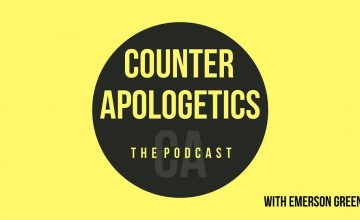Naturalists, according to David Papinau, author of the Stanford Encyclopedia of Philosophy entry on naturalism, urge “that reality is exhausted by nature, containing nothing ‘supernatural’.” Naturalism “has no very precise meaning in contemporary philosophy” beyond this, along with an emphasis on science as a means to understand the natural world.
Naturalism is the view that there is only the natural world. I defend this simple conception of naturalism, ward off a few criticisms, and argue that there’s a kind of parity between the terms “theism” and “naturalism.” In other words, if you don’t have a problem with the term “theism,” you shouldn’t have a problem with “naturalism.”
/ / /
Follow on Twitter @waldenpod and @OnPanpsychism
/ / /
a few elaborations of naturalism…
“By ‘naturalism’ I mean the view that the world contains a single basic type of stuff, whose behavior is governed by a single set of simple, general laws, and that these laws are those revealed by science. The most common version of naturalism among contemporary philosophers is physicalism, the view that the world is entirely made up of matter, and matter is exhaustively described by physics. But some philosophers reject physicalism, even while accepting naturalism, holding that matter is not exhaustively described by physics—there are fundamental aspects of matter that physics is blind to. In particular (they tend to say), there are certain things each of us can know about matter, such as that one particular portion of matter (the one between our ears) sometimes feels and thinks and experiences, which go beyond both what physics itself says and what can be deduced from any physical description, no matter how detailed. Because facts about my consciousness are left out by any purely physical descriptions, these ‘naturalistic anti-physicalists’ infer that consciousness must be itself a fundamental feature of reality, no more derivable from physical properties than mass is derivable from charge.”
Luke Roelofs
“Naturalism is a philosophy according to which there is only one world — the natural world, which exhibits unbroken patterns (the laws of nature), and which we can learn about through hypothesis testing and observation. In particular, there is no supernatural world — no gods, no spirits, no transcendent meanings. I like to talk about a particular approach to naturalism, which can be thought of as Poetic. By that I mean to emphasize that, while there is only one world, there are many ways of talking about the world. “Ways of talking” shouldn’t be underestimated; they can otherwise be labeled “theories” or “models” or “vocabularies” or “stories,” and if a particular way of talking turns out to be sufficiently accurate and useful, the elements in its corresponding vocabulary deserve to be called real.”
Sean Carroll
“Naturalism says that causal reality is natural reality: the domain of causes is nothing more nor less than the natural world. Atheism says that there are no gods; in consequence, atheism says that there is no God. Naturalism entails atheism: if causal reality is natural reality, then there is no (supernatural) cause of natural reality, and, in particular, there is no God. But atheism does not entail naturalism: to deny that there are gods is not to insist that causal reality is natural reality. . . . Supernaturalism says that causal reality outstrips natural reality: there are supernatural causes. . . . This ‘minimal’ conception of naturalism relies on a prior understanding of the distinction between the natural and the supernatural (as did our ‘minimal’ conception of theism). We shall proceed on the assumption that we do understand this distinction well enough. If we come to have doubts about whether we do understand this distinction well enough, then we can return to give it more careful consideration. ‘Minimal naturalism’ admits of elaboration in many different – mutually inconsistent – ways. Any suitably elaborated naturalism will hold that some features of the natural world are primitive – not susceptible of further explanation – whereas other features of the natural world are fully explained in terms of those primitive features. Thus, for example, some naturalists suppose that all of the primitive features of the natural world are physical features – i.e. features that lie in the proper domain of the discipline of physics. Other naturalists suppose that there are features of the natural world . . . that cannot be fully explained in terms of the fundamental physical properties. The key point to note is that all naturalists suppose that there are no supernatural causal properties…”
Graham Oppy
Podcast: Play in new window | Download
Subscribe: | More
